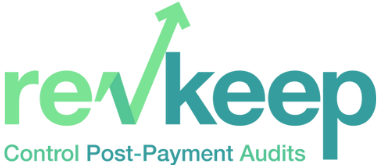The nation’s COVID-19 Public Health Emergency has been lifted effective May 11, 2023, per the recent announcement by President Biden. What does that mean for providers regarding post-payment (RAC) audits?
Guidance and Resources from CMS for Post-PHE Medical Reviews
Luckily the Centers for Medicare and Medicaid Services (CMS) have begun offering guidance and resources for when the PHE ends. The most recent post-PHE information from CMS is a new resource page explaining plans for conducting medical reviews post-PHE. CMS made the resource page available late in 2022.
Although many current waivers and flexibilities available to providers will end on May 11, 2023, there are some exceptions. One exception will be the face-to-face encounter between the patient and the physician. Therefore, what will the impact be on the growing practice of telehealth?
Impact of the End of Waivers and Flexibilities on Telehealth
One positive sign is there will be time to adjust to the changes. Kimberly Skehan – Director of Compliance, Regulatory & Quality at Simione Healthcare Consultants with more than 30 years of clinical, management, and consulting experience in home health and hospice, stated, “Providers will have an additional 151 days beyond the last day of the COVID-19 PHE to continue relying on telehealth to meet F2F requirements.” (SimiTree)
CMS clarified in September that it would follow provisions enacted by Congress in the Consolidated Appropriations Act of 2022 (CAA 2022). The act extends F2F telehealth waivers for both home health and hospice. Additionally, additional exceptions surround home health aide training and supervision.
Post-PHE Medical Reviews and Exceptions
The new post-PHE resource made available by CMS also explains how Medicare Administrative Contractors (MACS), Recovery Audit Contractors (RACs), and the Supplemental Medical Review Contractor (SMRC) plan to conduct medical reviews when the PHE ends.
In general, CMS said, it does not intend to focus reviews on claims with dates of service during the PHE, when certain waivers and exceptions were in place. An exception to this plan will be a medical review to assess aberrant billing behaviors or potential fraud. The U.S. Department of Health and Human Services Office of Inspector General may also perform medical reviews. According to various sources, CMS has stated that all claims reviewed will use the applicable rules in place at the time of dates of service on the said claim.
Regarding Post-PHE medical review exceptions, CMS plans to allow medical reviews to be conducted on claims with dates of service but only during the PHE in cases of aberrant billing behaviors or potential fraud on claims. This policy underscores the OIG’s previously stated interest in cracking down on providers who may have taken advantage of the pandemic to cheat the system. Again, I feel this is very fair and reasonable, provided, of course, that the auditors adhere to it.
We are hearing from many providers who feel the fallout from increasing Medicare audits, including those who did not intend to file fraudulent claims. Unfortunately, the number of audits and investigations continues to rise, a troubling trend that we do not believe will slow down in the foreseeable future.
RevKeep and Providers Unite as Solutions
To overcome this challenge, healthcare providers can benefit from healthcare revenue management software like RevKeep. This software solution helps healthcare providers streamline their revenue cycle management processes, reducing errors and improving accuracy. By implementing RevKeep, healthcare providers can optimize their revenue management processes and reduce the risk of complex denials.
In addition to utilizing software solutions like RevKeep, providers can benefit from joining forces with other healthcare providers in the LinkedIn Group Providers Unite. This group offers a platform for providers to unite against payors to end the payment battle, free from any “vendor pitches” or further “noise.” Joining this group can provide providers with valuable insights, resources, and support to help them navigate the complex world of healthcare revenue management.
In conclusion, the end of the PHE does not mean the end of post-payment audits for healthcare providers. However, by utilizing resources and software solutions like RevKeep, and joining forces with other providers in groups like Providers Unite, providers can take proactive steps to navigate the ever-changing landscape of healthcare revenue management.


